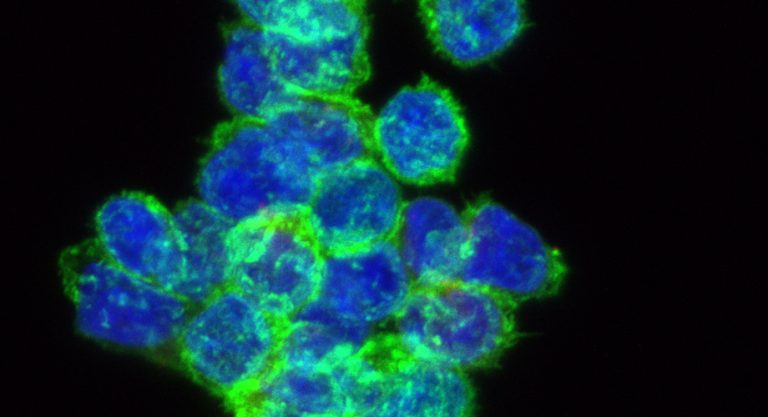
AbbVie and Scripps Research said today they will integrate Scripps’ expertise in digital and precision medicine with AbbVie’s drug R&D expertise in an expanded collaboration designed to develop new treatments for disease areas that include oncology, immunology, neurology and fibrosis.
The collaboration—whose value was not disclosed—marks an expansion of a partnership launched by AbbVie and Scripps research in 2018 focused on developing T-cell therapies aimed primarily at cancer, including solid tumors, based on what the partners said was an improved CAR-T platform they co-developed.
That platform is designed to enhance safety, versatility and efficacy through a proprietary modular “switchable” CAR-T cell that uses antibody-based switch molecules to control the activation and antigen specificity of CAR-T cells. Last year when their partnership was announced, Scripps and AbbVie said the technology may enable the development of universal CAR-T-based treatments across several types of hematological and solid tumor indications.
In November 2018, Scripps researchers published a study in PNAS showing in a mouse model that the switchable CAR (sCAR) T cell platform can impart antitumor efficacy while dissociating long-term persistence from chronic B cell aplasia.
“The sCAR T cell employs a universal design that can be redirected to nearly any therapeutic antigen target. This is expected to be important in combating tumor relapse caused by antigen loss observed with conventional CAR T cell therapy, as long-lived sCAR T cells can then be used to target other B cell antigens such as CD20 or CD22,” the authors wrote. “We expect translation of these results clinically to be a powerful method of promoting antitumor immunity with engineered T cell therapies.”
Scripps Research has carried out its partnership with AbbVie through its drug development division Calibr, which was established in 2012 as an independent not-for-profit called the California Institute for Biomedical Research before merging with Scripps in 2016.
The relationship between AbbVie and Scripps stretches back more than a decade earlier, to the development by AbbVie predecessor Abbott of Humira® (adalimumab) based on discoveries made at the institute. AbbVie spun off from Abbott in January 2013.
“Based on our strong switchable CAR-T alliance launched in 2018, we feel the expanded relationship with AbbVie represents a robust path forward for some of our programs, complementing a diverse ecosystem of innovation we’ve created over the past several years at Scripps to advance life-changing therapies,” says Peter Schultz, PhD, CEO of Scripps Research and Calibr.
Scripps Research will present to AbbVie an undisclosed number of preclinical programs of mutual interest per year for consideration to be included in the collaboration—in addition to programs initially named, which range from preclinical to IND stages.
Scripps and AbbVie said they will also work to advance CD3 bispecifics against oncology targets nominated by AbbVie.
Scripps Research agreed to continue to conduct pre-clinical R&D—and in some cases Phase I clinical trials—with AbbVie having an exclusive option to further develop and commercialize.
For each program AbbVie exercises an option to develop, the biopharma giant has agreed to pay Scripps Research option exercise fees, payments tied to achieving development and commercial milestone, as well as tiered royalties. AbbVie also agreed to make an undisclosed upfront payment, plus a near-term milestone payment.
“This partnership with Scripps Research will collaboratively advance next generation programs, build stronger relationships with proven and emerging scientific leaders, and most importantly help us advance novel medicines for patients,” added Mohit Trikha, Ph.D., vice president and head of oncology early development, AbbVie.













